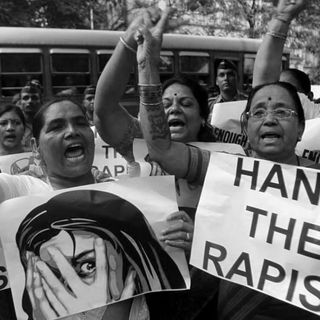Earlier this year, a study found that elderly women across the US and Europe performed more housework than elderly men — a gap that is likely reflected, if not exacerbated, in India. However, gender inequality at old age is not limited to domestic imbalance. Now, as The Wire reports, a local study has found that elderly women in India are far more financially vulnerable than elderly men.
The study examined the financial standing of 10,000 participants above the age of 60. Overall, the elderly in India have seen an increase in purchasing power over the last two decades, and have become more aware about how to manage their finances and, given the increased life expectancy, are preserving financial resources so they last over the course of their lives.
However, despite the general increase in seniors’ financial well-being, money is still one of the main problems of elderly women in India. Though only 8% of the elderly overall had no source of income (most earned a living through their pension, gainful employment, rent, old age pension, or business), only 2% of older men had no source of income, while 14% of older women had no income.
Elderly women were also less likely to be employed than elderly men. 21% of of elderly men were engaged in jobs or gainful employment, compared to 19% of women. Where the real disparity lay was in earnings: older women earned less than older men at every income level in the study. As The Wire points out, this disparity is not only because of the existing wage gap, but also because inheritance laws have leaned heavily in favor of men in the past.
Though the picture is rosier for the elderly in general, there are still areas where both elderly men and women do not have complete agency over their money. The study found that only 32% of the elderly participants made purchases at their own discretion, while family members make the call for 27% of them. And despite elderly men being better off in general, they were more likely to be facing financial troubles and problems with medical expenses than elderly women.
India has always been good at respecting the elderly population; it’s ingrained in our culture. However, these findings indicate that it may be time to shift our perspective from simply taking care of them — to helping them achieve the financial power and agency they need to take care of themselves.




